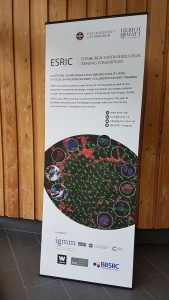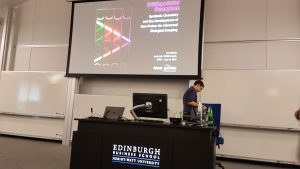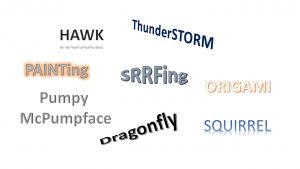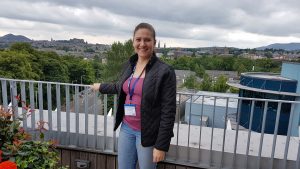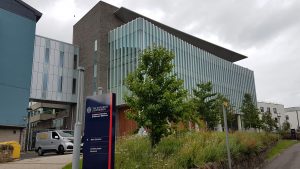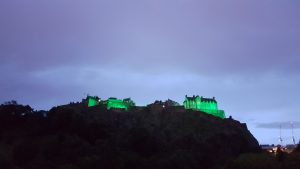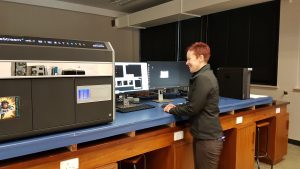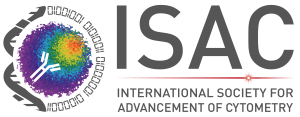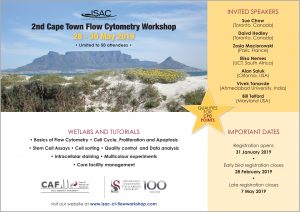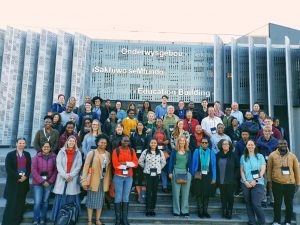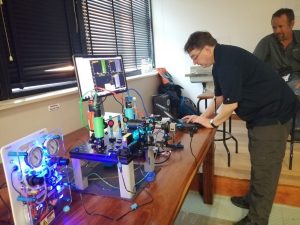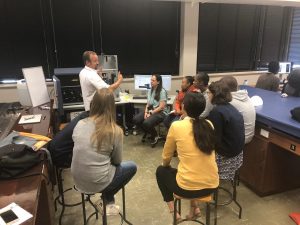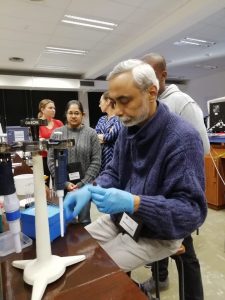Lize Engelbrecht, manager of the Fluorescence Microscopy Unit was the first South African selected to attend the ESRIC super-resolution microscopy Summer School 2019 in Edinburgh. The Edinburgh Super-Resolution Imaging Consortium (ESRIC) is a National Super-resolution Imaging Facility with a focus on interdisciplinary collaboration and training. It is a joining of expertise across a broad scientific spectrum from cell biologists to physical scientists.
The ESRIC summer school is an annual advanced imaging training course which takes place over 5 days in Edinburgh. In 2019 the 6th Summer School were held, where only 36 delegates (3x as many applications) are selected to attend from all over the world. Delegates included researchers from the level of MSc and PhD up to professors, all who were interested in the techniques of super-resolution microscopy, how best to apply them to their research question, to meet fellow scientists in the super-resolution community and exchange knowledge and ideas. The work of all aimed to extend the boundaries of cellular imaging beyond diffraction limits in order to investigate cellular functions and human disease.
Topics included new developments in Structured Illumination Microscopy, STED and Single Molecule Localisation Microscopy (SMLM) and a large number of new acronyms and buzz words could often be heard during the workshop. Although most of these sounded like ordinary words, they actually referred to new plugins for current imaging processing software, new techniques of sample preparation and improved labelling techniques, as well as ways to validate and cross check super-resolution data.
This was a very valuable opportunity for CAF to gain more experience and expertise in the field of super-resolution microscopy. We are looking forward to apply these techniques in many of the research projects here in South Africa.

